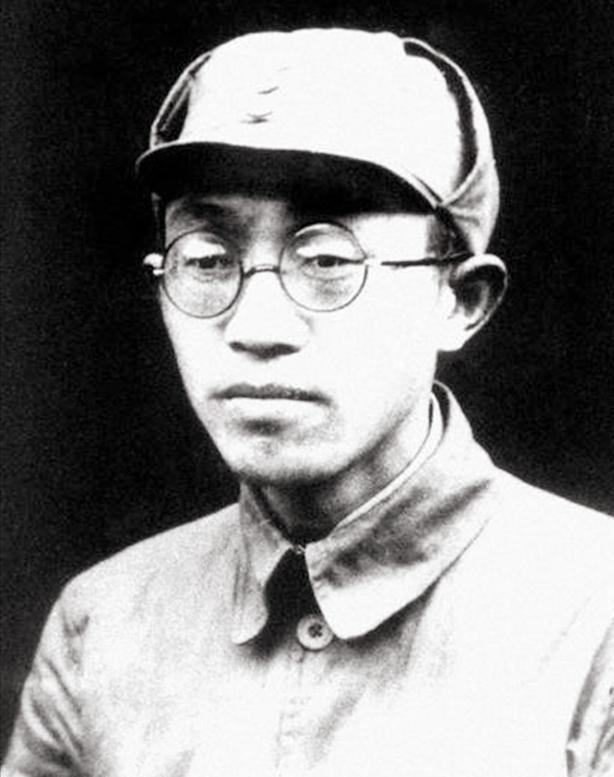After the outbreak of the War of Resistance Against Japan, Huang Kecheng, who was the director of the Organization Department of the General Political Department of the Eighth Route Army, was sent to the 344th Brigade of the 115th Division as the brigade political commissar.

The predecessor of the 344th Brigade was the Red 15th Army, and the Formation of the Red 15th Army was formed by the merger of Xu Haidong's Red 25th Army and Liu Zhidan's Northern Shaanxi Red Army. This is a unit that dares to fight and has strong combat effectiveness, and most of the cadres are from the former Red 25 Army.
They were good at charging and fighting fiercely, and used the method of dealing with the Kuomintang army, fighting position warfare and movement warfare to deal with the Japanese army. Because they did not understand the so-called "Bushido spirit" in the minds of the Japanese army, they often suffered a lot of losses.
The troops are a bit hill-top-racist and xenophobic, and it is difficult for Huang Kecheng to carry out his work in the troops, and even some cadres are not interested in this political commissar. Not only did he not listen to his speech, but even in life, he also targeted Huang Kecheng.
Huang Kecheng is engaged in political work, and did not use his position to force them to order them, but patiently did the work, hoping that after everyone understands each other, the relationship will naturally ease.
As a political commissar, he did not intervene in the war at the beginning, and the operational arrangements were all formulated by Brigadier Xu Haidong and the chief of staff, but he often suffered losses during the battle, and Huang Kecheng also advised everyone to study the new way of playing, and the cadres of the unit basically did not listen to opinions.
At this time, a major incident occurred in the 344th Brigade, which surprised Xu Haidong and Huang Kecheng, and Zhang Shaodong, the commander of the 687 regiment, and Lan Guoqing, the chief of staff, led the rebellion, and in the end they only took a few company platoon commanders, and most of the troops were brought back. This is a wake-up call for the 344th Brigade, and political work should be intensified.
Perhaps taking this incident as an opportunity, Huang Kecheng's work in the 344 Brigade was carried out smoothly. In the subsequent operations, Huang Kecheng and Xu Haidong studied the battle plan together, and sometimes Xu Haidong was recuperating from illness, and Huang Kecheng led the team to complete the task.
The 344th Brigade fought many good battles with the cooperation of the two of them, and some battles were not fought well, which made the Central Committee and the Headquarters of the Eighth Route Army very anxious.
In the Battle of Machidian, Xu Haidong and Huang Kecheng led 2 regiments to ambush the enemy and occupy a favorable position. It could have been attacked with mortar machine guns and then charged, so that small casualties would yield greater results, but the two regiments were accustomed to slaming and charging.
Soon after the battle began, a white-knife battle was fought with the enemy. The Japanese army was caught off guard at first, but the Japanese army was well trained, and soon organized a tenacious resistance, the battle was fought until dark, the Japanese reinforcements came, and the enemy was not completely destroyed, and the troops withdrew from the battle due to casualties.
The battle annihilated more than 500 enemies, and there were 200 or 300 casualties.
Zhu Laozong, commander-in-chief of the Eighth Route Army, inspected the work of the 344th Brigade and severely criticized the brigade commander Xu Haidong. Xu Haidong, who was not in good health, did not fight this battle well, coupled with his poor health and coughed up blood, so he was invited to Yan'an to study for treatment.
Xu Haidong left the army, who would serve as the brigade commander, Zhu Laozong and Huang Kecheng discussed letting Tian Shouyao act as an agent, but the central authorities did not agree. Tian Shouyao was upset about this, and President Zhu held a party committee to educate Tian Shouyao, and everyone did not say a word. Mr. Zhu got angry and said: What kind of bird party committee are you? Do not dare to self-criticize, what a party member.
Under the guidance of General Manager Zhu, the troops conscientiously summed up the teaching they had given since the War of Resistance Against Japanese Aggression, and there was a very good change in their thinking, changing from position warfare to guerrilla warfare.
Later, under the leadership of Huang Kecheng, this unit was successively reorganized into the second and fifth columns of the Eighth Route Army. In the end, he went south to support Central China, and after the Anhui Incident, it was reorganized into the 3rd Division, becoming the most capable main force under Chen Yi.
After the victory of the War of Resistance Against Japanese Aggression, the main force of the 3rd Division grew to more than 30,000 people and rushed to the northeast to make new contributions.